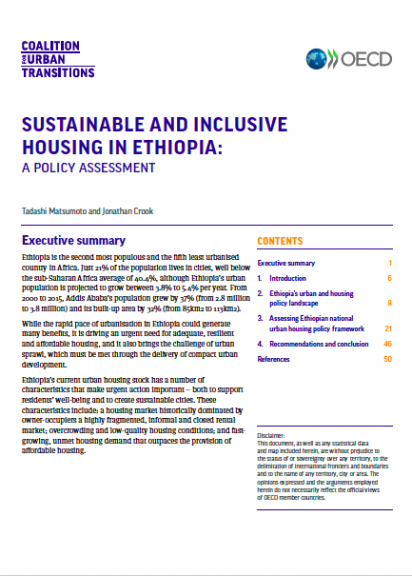Sustainable and Inclusive Housing in Ethiopia: A policy assessment


This paper assesses how Ethiopia’s current national housing framework is addressing the dual challenges of housing affordability and compact development, and provides recommendations to promote sustainable and inclusive cities in Ethiopia.
As the second most populous and fifth least urbanised country in Africa,
Ethiopia is currently facing the pressure of rapid urban expansion and
growing urban housing demand. Ethiopian cities generally have a large
proportion of sub-standard housing stock and a deficient affordable formal
rental market. In a context where the government owns all urban land
and exerts considerable control on development, since 2006 Ethiopia has
undertaken an ambitious housing programme to significantly increase the
quantity of affordable urban housing units, although challenges remain.
This working paper assesses the impact of national housing policy instruments
in Ethiopia on housing affordability and urban form and provides insight to
enable a more robust framework for compact and affordable cities. It builds on previous research: Housing policies for sustainable and inclusive cities.
This paper was created in partnership with the OECD.